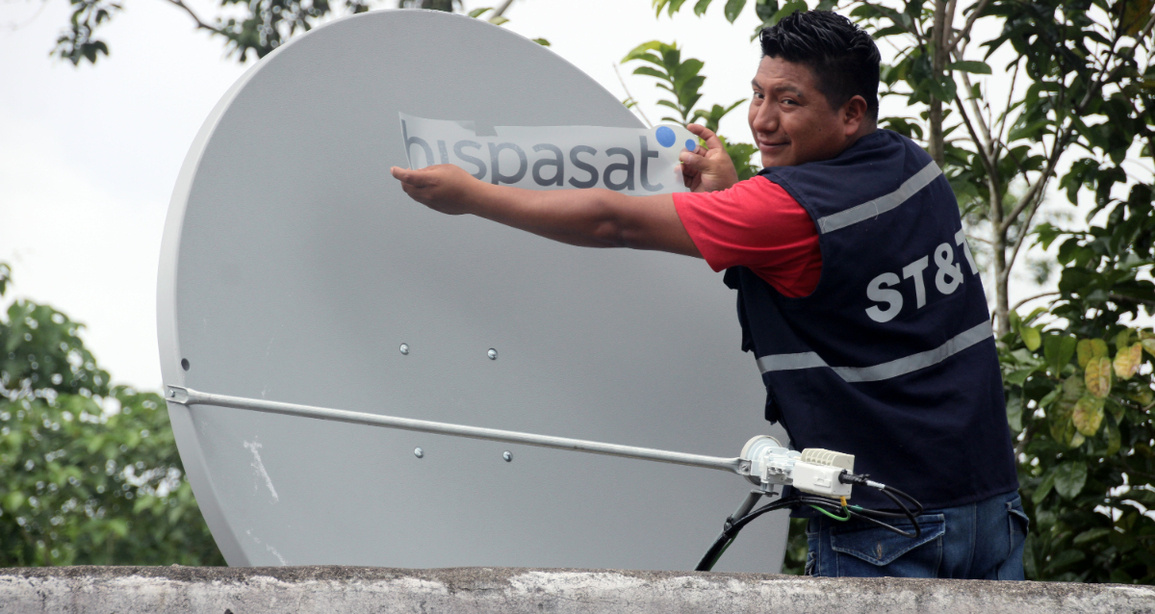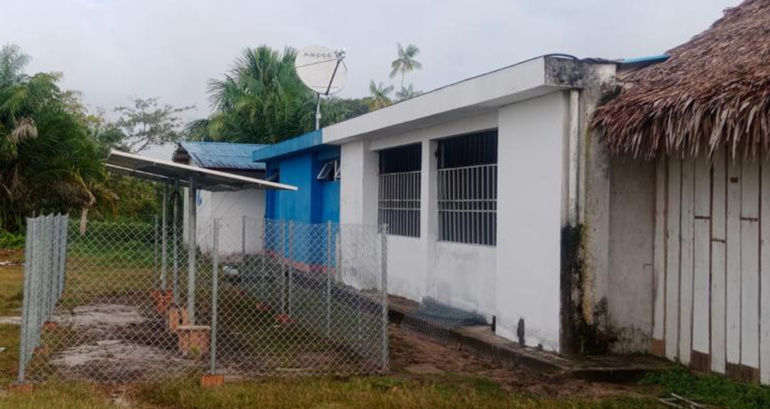
Connectivity is a fundamental tool to promote the egalitarian development of society. However, the differences that exist in the deployment of infrastructure between the urban and rural world represent an obstacle for the most remote and dispersed populations to have the same opportunities as large cities in basic rights such as education or health. This has aggravated the consequences of the pandemic in regions such as Latin America, in whose rural areas schooling has come to a screeching halt.
According to a 2020 report from the Inter-American Development Bank, 46.1% of urban households in Ecuador have access to the Internet, compared to only 16.6% of rural households. The difficult access to the most remote areas of provinces such as Orellana, Carchi, Morona Santiago, Napo or Pastaza, nestled between the Andes and the Amazon jungle, makes the deployment of terrestrial telecommunications infrastructure very difficult.
That is why the use of satellite technology is key when guaranteeing access to connectivity and quality education and healthcare. For a few months now, HISPASAT has collaborated with the government of Ecuador through its Vice Presidency and its ministries of Education, Public Health and Telecommunications and Information Society to launch two pilot projects that will demonstrate the viability of quality services that reduce the digital divide in their rural areas. This work was carried out with two events in which said projects were delivered and which took place on December 2 and 3.
The first of them consists of the deployment of five complete digital classroom solutions in rural parishes of Orellana, Carchi, Morona Santiago and Napo. Thanks to them, teachers decide what content they want to work on with students and download it via satellite to a local device. Thanks to the WiFi deployed within the school, students can store this content on tablets that have also been provided to them and work on it at home without having to resort to Internet access there that their families cannot afford for economic or social reasons. mere coverage. These devices also have anti-theft software that prevents them from being used on networks other than the school network for issues other than those related to the educational field. In addition, a second WiFi network has been deployed in the surroundings of these schools, this time external, so that the 400 students benefiting from this solution can connect to it even when they are closed and so that community members also have access to Internet.
In the second, the installation of a remote teleconsultation and videoconference system will be carried out in the rural parish of Cuasha (province of Pastaza) and a monitoring system located in the General Hospital of Puyo. This system has various medical examination and diagnostic equipment so that Cuasha assistants can measure the vital signs of patients, perform electrocardiograms or inspect their skin, iris, throat or ears so that, in real time, the Puyo specialist doctors can monitor their status in real time via satellite.
Telecommunications are essential to foster GDP growth, promote inclusion and provide social benefits such as those covered through these two pilot projects. Satellite technology and HISPASAT coverage over Ecuador (or any other Latin American country) would allow not only to extend these two experiences to the rest of the country's remote parishes that need it, but also to energize their productive sectors, some of which are so basic in the national economy and in need of a digital transformation such as the fishing industry.

The Smart Boat pilot project by Redeia and Nexmachina has deployed IoT sensors on a Hondarribia boat to monitor the safety of its crew and improve its fishing activity.

This 2021 that is now ending, marked by the pandemic and the measures aimed at reducing its impact, has been for HISPASAT a year full of good news and initiatives of great importance for promoting connectivity in Spain and the American continent.

Varias decenas de estudiantes de la escuela rural del departamento de Guainía han iniciado su proceso de transformación digital gracias a nuestra solución de internet satelital de banda ancha rural, te lo contamos…

This 2021 that is now ending, marked by the pandemic and the measures aimed at reducing its impact, has been for HISPASAT a year full of good news and initiatives of great importance for promoting connectivity in Spain and the American continent.

HISPASAT presented its connectivity solutions for the rural world at Presura 21, including its new wholesale satellite broadband service of up to 100 Mbps.